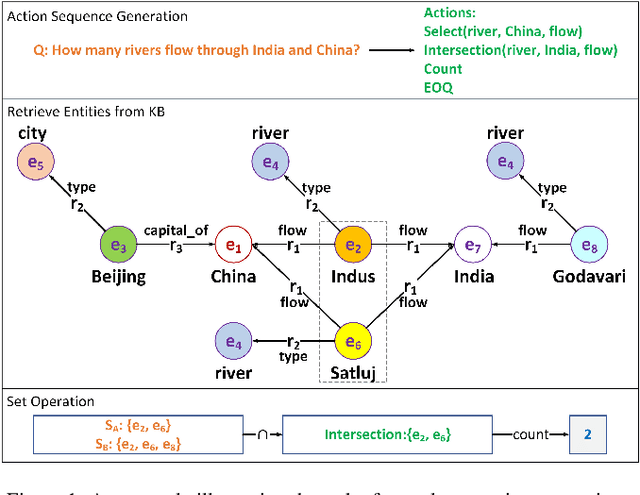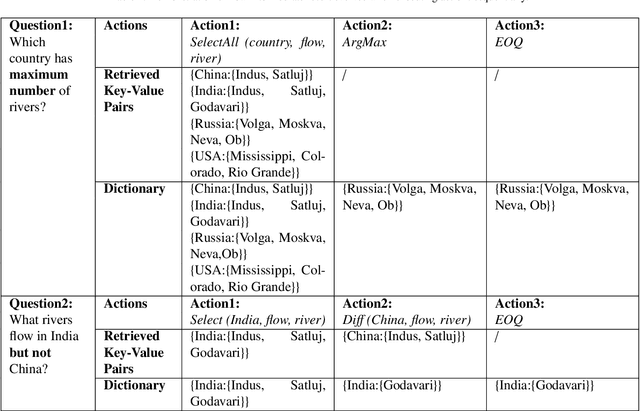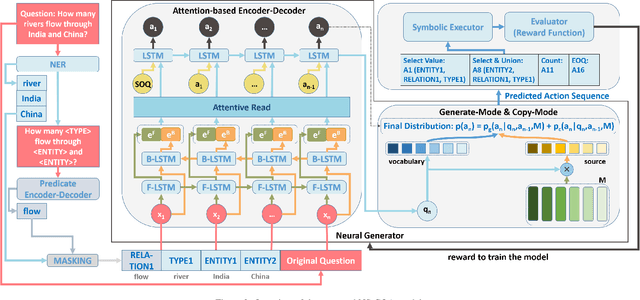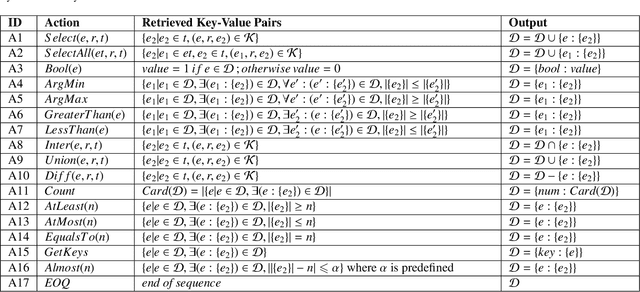Jingyao Zhang
A Solution-based LLM API-using Methodology for Academic Information Seeking
May 24, 2024Abstract:Applying large language models (LLMs) for academic API usage shows promise in reducing researchers' academic information seeking efforts. However, current LLM API-using methods struggle with complex API coupling commonly encountered in academic queries. To address this, we introduce SoAy, a solution-based LLM API-using methodology for academic information seeking. It uses code with a solution as the reasoning method, where a solution is a pre-constructed API calling sequence. The addition of the solution reduces the difficulty for the model to understand the complex relationships between APIs. Code improves the efficiency of reasoning. To evaluate SoAy, we introduce SoAyBench, an evaluation benchmark accompanied by SoAyEval, built upon a cloned environment of APIs from AMiner. Experimental results demonstrate a 34.58-75.99\% performance improvement compared to state-of-the-art LLM API-based baselines. All datasets, codes, tuned models, and deployed online services are publicly accessible at https://github.com/RUCKBReasoning/SoAy.
Less is More: Data-Efficient Complex Question Answering over Knowledge Bases
Oct 29, 2020



Abstract:Question answering is an effective method for obtaining information from knowledge bases (KB). In this paper, we propose the Neural-Symbolic Complex Question Answering (NS-CQA) model, a data-efficient reinforcement learning framework for complex question answering by using only a modest number of training samples. Our framework consists of a neural generator and a symbolic executor that, respectively, transforms a natural-language question into a sequence of primitive actions, and executes them over the knowledge base to compute the answer. We carefully formulate a set of primitive symbolic actions that allows us to not only simplify our neural network design but also accelerate model convergence. To reduce search space, we employ the copy and masking mechanisms in our encoder-decoder architecture to drastically reduce the decoder output vocabulary and improve model generalizability. We equip our model with a memory buffer that stores high-reward promising programs. Besides, we propose an adaptive reward function. By comparing the generated trial with the trials stored in the memory buffer, we derive the curriculum-guided reward bonus, i.e., the proximity and the novelty. To mitigate the sparse reward problem, we combine the adaptive reward and the reward bonus, reshaping the sparse reward into dense feedback. Also, we encourage the model to generate new trials to avoid imitating the spurious trials while making the model remember the past high-reward trials to improve data efficiency. Our NS-CQA model is evaluated on two datasets: CQA, a recent large-scale complex question answering dataset, and WebQuestionsSP, a multi-hop question answering dataset. On both datasets, our model outperforms the state-of-the-art models. Notably, on CQA, NS-CQA performs well on questions with higher complexity, while only using approximately 1% of the total training samples.
 Add to Chrome
Add to Chrome Add to Firefox
Add to Firefox Add to Edge
Add to Edge